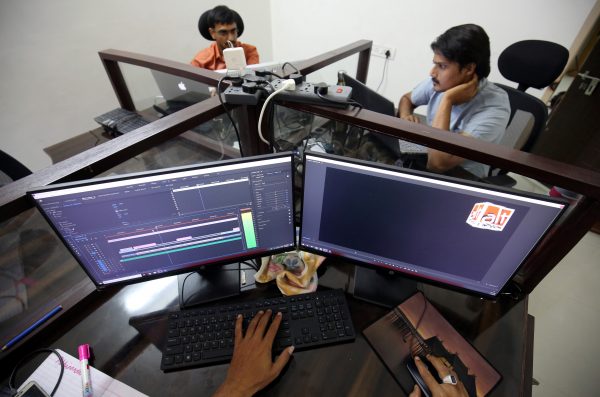The advertisements feature a pointed editorial directed against the sharing of ‘fake news’ and ‘misinformation’ on social media platforms during the 2019 general and state elections which commenced on 11 April. The advertisements have been sponsored by newspapers such as The Hindu Group, Hindustan Times, The Times of India and Dainik Bhaskar in both Hindi and English. Mainstream media campaigns are at the same time urging readers to remain loyal to the papers despite them being slower at reporting news. They attribute the delay to standard news processes for verifying information.
Indian newspapers remain the envy of the world due to increasing circulation and growing revenue in the past two decades. The media industry is expected to grow in 2019 on the back of increased advertising spend during the 2019 elections and the Cricket World Cup.
Newspapers themselves have fallen victim to misinformation shared on WhatsApp, Facebook and Twitter. Recently, a Telugu language newspaper Andhra Jyothy published a front-page report claiming that a survey conducted by Lokniti-CSDS projected that the Telugu Desam Party would return to power in Andhra Pradesh. CSDS issued a denial calling it ‘fraudulent reporting’.
Despite two decades of success, there is a sense of pessimism about the future of India’s mainstream media stemming from the increasing use of social media by political parties, their supporters and mobile phone users to distribute information since the 2014 elections. The speed of social media in distributing news, misinformation and ‘fake news’ cannot be matched by the mainstream newspapers despite them all running online editions.
India has a telephone density of nearly 90 per cent and a mobile phone subscription volume of over 1.1 billion. In late 2018 India had 560 million internet subscribers who spent on average 17 hours per week on social media. The aspiring class and first-time voters are increasingly connected to the world via their mobile phones.
With increased social media usage, fake news has proliferated. In one recent case, a BBC UK news story circulated on a WhatsApp group predicting that the ruling Bhartiya Janata Party (BJP) in India would lose the general election to the Indian National Congress (INC). The story attributed this prediction to the ‘American spy agency CIA’, ‘British spy agency KGB’ and ‘Israeli spy agency MOSAD’. The story is nowhere to be found on the BBC news network.
A WhatsApp group called ‘PM Modi 2019’ has become known for distributing misinformation and fake images about INC leaders, in particular the Gandhi family. The Gandhi’s are said in this group to be ‘licentious Muslims masquerading as Hindus’. Social media is now driving perceptions about parties and their leaders. Even if disinformation is widely publicised as false, it continues to be shared on networking platforms and believed by many.
Social media companies promised the Election Commission of India (ECI) that they would come up with a ‘code of ethics’ for the industry and crackdown on the distribution of misinformation and fake news. The companies included Facebook, Twitter, Google, Chinese app TikTok and Indian app ShareChat. Companies say that they have been taking down accounts of people allegedly associated with political parties. They have been holding town hall meetings and media literacy workshops for journalists and students to identify misinformation on their platforms and report it.
Many journalists — including The Hindu’s minority affairs reporter Syed Mohammad — believe the multinational companies’ actions are ‘too little too late’. In response, a number of fact-checking organisations — such as Alt News, Fact Crescendo and Boom — have sprung up to check the veracity of information shared on social media sites. Journalists in Hyderabad and Bangalore agree that social media reach has expanded sufficiently to have an impact on the outcomes of the 2019 elections. They are pessimistic about the capacity of the mainstream media, the ECI, fact checkers and social media companies to stop fake news and misinformation.
Many argue that the mainstream media has speed breakers — sub-editors and editors — but that social media has no such ‘checks and balances’. Other journalists believe that the mainstream media in India has lost its credibility because of partisan reporting in recent times. People holding this view postulate that widespread access to inexpensive data on mobile phones has decreased the mainstream media’s relevance.
Given these conflicting perspectives it seems that the 2019 elections may end up being a referendum on the status of mainstream media in Indian society. Its relevance as the primary conduit for information is being severely tested.
Usha M Rodrigues is Senior Lecturer in Journalism at Deakin University. She has co-authored two books on Indian news media and several refereed articles. Her research can be followed on Twitter at @umanchanda.

